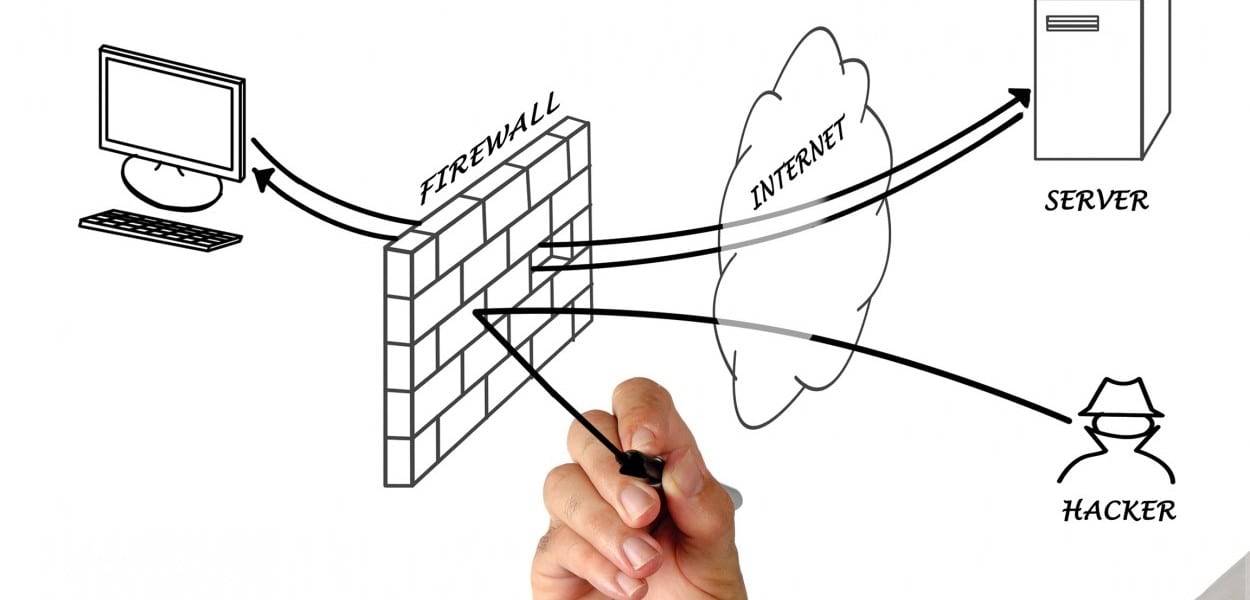As cyber threats continue to evolve, protecting digital assets has become a critical priority for businesses. One of the most fundamental and effective tools in the fight against cyberattacks is the network firewall. Acting as a barrier between internal networks and external threats, firewalls play a crucial role in ensuring network security. Understanding how network firewalls function and why they are essential can help businesses safeguard their sensitive data and maintain operational integrity.
What is Network Firewall Security?
A network firewall is a security device—either hardware, software, or a combination of both—that monitors and controls incoming and outgoing network traffic. Firewalls use predetermined security rules to either permit or block data packets from entering a network, effectively forming a shield between trusted internal networks and untrusted external sources, such as the internet. By enforcing these rules, firewalls help prevent unauthorized access to a company’s network while allowing legitimate traffic to flow freely. For more details visit https://www.fortissecurity.com.au/

Types of Firewalls
Packet-Filtering Firewalls: One of the most basic types of firewalls, packet-filtering firewalls, examine the data packets that enter or leave a network. They operate at the network layer, using rules based on source and destination IP addresses, port numbers, and protocols to determine whether to allow or block traffic. While effective, they lack deep inspection capabilities and may not catch sophisticated attacks.
Stateful Inspection Firewalls: These firewalls take security a step further by not only inspecting packets but also keeping track of the state of active connections. Stateful firewalls analyze the behavior of data traffic and allow only those packets that match an established connection. This approach provides better protection against certain types of attacks, such as spoofing and DoS (Denial of Service) attacks.
Next-Generation Firewalls (NGFW): NGFWs are the most advanced type of firewall. In addition to traditional packet filtering and stateful inspection, NGFWs offer deep packet inspection, intrusion prevention systems (IPS), and threat intelligence. They can detect and block malware and other sophisticated threats, making them a robust choice for modern cybersecurity needs.
Proxy Firewalls: A proxy firewall acts as an intermediary between internal users and external networks, hiding the true network address and preventing direct connections. By mediating traffic, proxy firewalls provide enhanced security and are commonly used for web filtering and secure internet access.
The Importance of Network Firewall Security
Protection from External Threats: The most important function of a network firewall is to shield a business’s network from external threats like hackers, viruses, and malware. By blocking unauthorized access and filtering out malicious traffic, firewalls reduce the risk of data breaches, ransomware attacks, and other cyber incidents.
Regulating Internal Traffic: Firewalls not only protect against external threats but also help control internal traffic. By segmenting networks and applying strict policies, firewalls ensure that sensitive information is only accessible to authorized personnel. This prevents internal data leaks and reduces the risk of insider threats.
Compliance with Security Regulations: Many industries are subject to regulations that require robust cybersecurity measures. Network firewalls help businesses comply with standards such as PCI-DSS, HIPAA, and GDPR by ensuring that sensitive data is protected from unauthorized access. This not only safeguards the business from penalties but also builds trust with customers and partners.
Enhanced Network Monitoring: Firewalls provide continuous monitoring of network traffic, helping IT teams identify and respond to suspicious activities. This visibility into network behavior enables faster detection of threats, allowing for quick remediation before a breach occurs.

Best Practices for Firewall Security
Regular Updates and Patch Management: Firewalls must be regularly updated to ensure they are equipped to defend against the latest threats. Failure to apply patches can leave systems vulnerable to known exploits.
Implementing Granular Rules: Overly broad firewall rules can create security gaps. IT teams should design granular policies that restrict access to sensitive areas of the network and minimize exposure to external threats.
Firewall Redundancy: Having backup firewalls or firewall failover systems ensures continuous protection in the event of a device failure, maintaining security and network uptime.
Conclusion
Network firewall security is a foundational component of a comprehensive cybersecurity strategy. By serving as a first line of defense, firewalls prevent unauthorized access, protect sensitive data, and enable businesses to operate securely in an increasingly hostile digital landscape. Whether using basic firewalls or advanced next-generation systems, implementing strong firewall security is essential for safeguarding both internal networks and external communications.




Comments